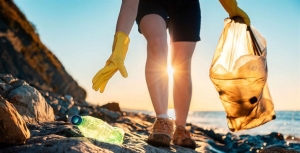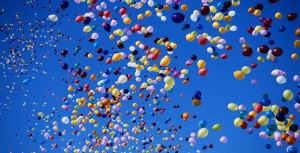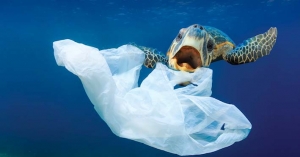Displaying items by tag: plastic
Plastics reduction – have your say on proposed actions
The EPA has released a discussion paper on a plan to reduce the use of plastic and the quantity of waste generated. Comments may be made via a survey or you can email a submission to This email address is being protected from spambots. You need JavaScript enabled to view it. (closing date 6 November).
Due in part to past litter reduction initiatives such as the Return and Earn recycling scheme and the phase-out of lightweight plastic bags, there has already been a 49% reduction in litter density since 2018–19.
What about a major source of plastic – synthetic turf?
As an aside, there is a major source of plastic that is only going to get worse that is from synthetic turf playing fields and its general use for surfaces in parks and school grounds. This issue doesn’t come under the plan but could be referred to in submissions.
There is no effective method for recycling this product. Microplastics that end up in the environment from the break-up of the plastic grass blades and loose infill are a major concern that is being monitored by the AUSMAP project. There will be more about research on this in a future issue of STEP Matters.
Strong action is needed
There are still frightening statistics about the impact of litter and the volume of plastic ending up as waste in landfill. For example, in 2022–23, NSW alone generated 891,000 t of plastic waste. Only 14% of this was recycled.
About 79% of litter washed into our waterways is plastic. Plastic litter can have disastrous consequences and significant cost on the environment and communities.
For every piece of litter on land in NSW, nine times more can be found in our waterways.
As littered plastic items are exposed to water, sunlight and rain, they can break down over time into microplastics and leach potentially harmful chemicals into the environment. It can also entangle or be swallowed by marine animals.
Taking into account the direct costs of cleaning up litter, as well as the indirect costs associated with loss of amenity and environmental values, litter costs NSW more than $500 million.
Is the reduction plan good enough?
The Boomerang Alliance’s view on the proposals is that the plan includes some sound policy actions and a timeline for implementation, but many of these proposed measures may not deliver the needed reductions in plastic litter and waste. Here is a summary of their main points
Reusable cups at food venues (applied from 2027)
Currently, food venues may voluntarily accept reusable cups, but this needs to go further. All outlets should be required to offer reusable cups and containers or accept BYO, reducing reliance on disposables. In Europe, dine-in customers are never served with disposable food ware.
Recyclable single-use cups and containers (2027)
While recyclable or compostable containers are already common, the issue lies with inadequate collection systems. Simply labelling items for recycling won’t address the core issues.
Return and earn for single-use cups and containers (2030)
This proposal is both tokenistic and impractical. What we need is a robust reusable cup return system. Other countries have already implemented these models, which reduce plastic waste and greenhouse gas emissions. These systems could be adopted now.
Tethered caps on bottles (2030)
One never knows whether loose caps from milk and soft drink bottles can be recycled. Attached caps solve this question. This strong policy is already in place in Europe. So, why wait until 2030? Propose that it be introduced by 2026.
National approach to cigarette butt litter (2027)
Ideally eliminate cigarette filters altogether, as recommended by the World Health Organisation. A reusable holder could replace the need for single-use filters.
Elimination of harmful chemicals in packaging (2027)
While this is a positive step, if chemicals are harmful, they should not be used in the first place. Mandatory labelling of ‘green-listed’ chemicals is also essential.
Phase-out of microplastics (2025)
Support this, but there should be stronger measures, such as mandating filters on washing machines to capture microfibres, rather than relying on a proposed rating system by 2027.
Standards for reusable shopping bags (2025)
Require plastic shopping bags to be stored out of sight at the point of purchase and only provided on request, unless they are clearly designed for reuse or are part of an extended producer responsibility. Reusable bags must be durable, contain recycled content, and be recyclable at the end of their lifecycle.
Phase-out of various plastic items (2027)
Agree with the phase-out of plastic carrier bags, food tags, and other non-compostable items.
Ban on lighter-than-air balloons (2025)
This ban could be implemented immediately. There is no need to wait until 2025.
Phase out of expanded and foamed plastic trays and packaging (2025)
Support this phase-out and believe it should be done as soon as possible.
A final word on the Australian recycling label
This system needs to ensure that labelled items are genuinely recycled, reused, or composted. Without this, it’s simply greenwashing.
Bubbles not Balloons
Every day there’s an outdoor event to celebrate or commemorate something or other, and balloons will be released. It looks spectacular for a moment or two, but they’re soon forgotten. What happens to them? Most end up in our seas, where they are eaten by marine wildlife, including seabirds. It sounds frivolous, but it’s become a major conservation problem.
BirdLife Australia has thrown its support behind a campaign by Zoos Victoria and the Phillip Island Nature Parks to shine a spotlight on this issue.
Most people aren’t even aware that the simple act of releasing balloons into the air poses a major danger to wildlife. However, the facts are startling. A CSIRO study found that balloons are in the top three most harmful pollutants threatening marine wildlife – along with plastic bags and bottles.
Albatrosses, cormorants, penguins and pelicans are all affected by this, but of all Australia’s seabirds, shearwaters, or muttonbirds, are the most badly affected when it comes to ingesting plastic debris.
For example, the decline of Flesh-footed Shearwaters on Lord Howe Island has been directly linked to the ingestion of debris, with balloons and their plastic attachments, one of the most prevalent and readily identifiable items found inside them. Further, two separate studies have found that 100% of Short-tailed Shearwaters contain plastic in their digestive systems.
The balloons fill the birds’ digestive tracts while offering no nutrition, and slowly poison them as toxic chemicals leach into the birds’ tissues.
Birdlife Australia is joining Zoos Victoria and Phillip Island Nature Parks to encourage Australians to make their outdoor events wildlife-friendly. The best way to do this is by choosing to use bubbles instead of balloons to reduce this source of harmful waste.
Help spread the word to use bubbles instead of balloons at outdoor events. It’s a simple act but it can make such a big difference.
This information comes from Birdlife Australia.
Further reading:
Senate Committee Recommends a Ban on Plastic Bags – Can this Happen?
Good news, a container deposit scheme is going to happen. The NSW Premier announced on 8 May that a scheme based on the Boomerang Alliance’s proposal would be introduced on 1 July 2017. Mike Baird claimed this would be a world-class scheme. The ACT will use the same scheme and Queensland could be on board as well.
This decision will be a major step in reducing the volume of plastic pollution that ends up in our waterways and oceans. The other major source is single use plastic bags. We wrote about this issue in STEP Matters Issue 182.
The Australian government is aware of the problem. On 18 June 2015 the Senate referred the following matter for inquiry and report by April 2016 by the Standing Committee on Environment and Communications.
The threat of marine plastic pollution in Australia and Australian waters, with particular reference to:
- the review of current research and scientific understanding of plastic pollution in the marine environment
- sources of marine plastic pollution
- the impacts of marine plastic pollution, including impacts on species and ecosystems, fisheries, small business, and human health
- measures and resourcing for mitigation
In their report the committee noted that, while there may be the lack of rigor of some of the estimates of the amount of plastic in the marine environment (after all it can only be calculated using some sort of sampling process) they are still sobering: five trillion plastic pieces on the surface of the oceans; eight million tonnes of plastics leaking into the ocean every day – that is the equivalent of one garbage truck of plastic every minute of every day of the year.
Not only is this volume of plastic a significant threat to the health of marine life. The committee was considerably alarmed to hear that the potential effect on human health from the ingestion of microplastics in the food chain is only now emerging as an area of research interest. The committee is concerned that there may be a looming health crisis associated with seafood consumption, and urges the prioritisation of research on this issue, and appropriate investment from both government and industry. The committee also considers that microplastics warrant specific focus in strategies aimed a mitigating the effects of marine plastic.
The report called for state and territory bans on plastic bags, an immediate ban on microbeads and the introduction of container deposit schemes across the country by 2020.
There are still many unnecessary waste issues to be addressed such as the so-called flushable wipes that clog up sewerage systems and take away coffee cups. Most of these changes require a change of mindset. The environment needs to be given more priority than convenience.
What Plastic is doing to Marine Life
The impact on marine life from plastic may be most obvious in coastal regions, but in August CSIRO released the results of the first analysis of the threat posed by plastic pollution to pelagic bird species worldwide. The report is published by the National Academy of Sciences of the US.



